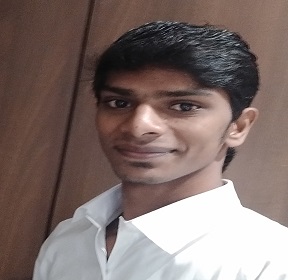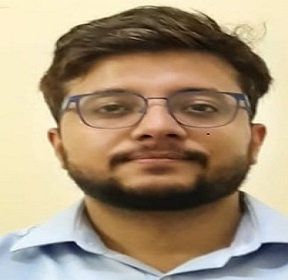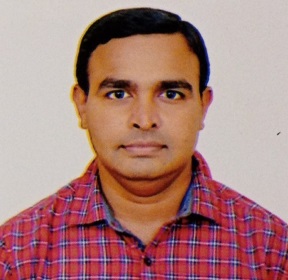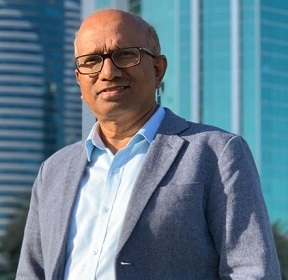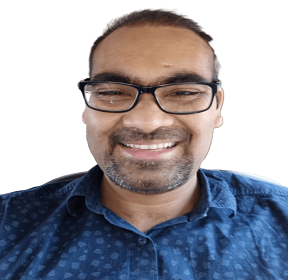Speakers
Kishore Kumar
Symbiosis International University, India IndiaTitle: Pulmonary Rehabilitation – The art of medical practice
Abstract:
Pulmonary rehabilitation (PR) is the “art of medical practice wherein an individually tailored, multidisciplinary program is formulated, which through accurate diagnosis, therapy, emotional support, and education stabilizes or reverses both the physio- and psychopathology of pulmonary diseases and attempts to return the patient to the highest possible functional capacity allowed by his or her pulmonary handicap and overall life situation.” The general goals of pulmonary rehabilitation are to control and alleviate symptoms, restore functional capabilities as much as possible, and improve quality of life. Pulmonary rehabilitation does not reverse or stop the progression of the disease, but it can improve a patient’s overall quality of life. Health care providers from various disciplines are needed to reach these goals. The success of PR will be judged by patient outcomes, including improved health related quality of life, reduced breathlessness, increased daily life activities.
Biography:
Mr. Kishore Kumar has completed his Bachelors in Respiratory Therapy from Chettinad Academy and Masters from Symbiosis International University, India. Currently, he is a full-time Ph.D. researcher in Chettinad Academy of Research and Education and he is the board member of the Indian Academy of Respiratory Care, an academic wing of the Indian Assoication of Respiratory Care. He is a fellow of the International non-invasive ventilation academy. He is also working as a Respiratory therapist in CMR homecare and rehabilitation center.
Ayush Pandey
Shree Guru Gobind Singh Tricentenary University IndiaTitle: Interstitial Lung Disease: - Progress and Problems
Abstract:
Interstitial lung disease involves all areas of medicine as it often occurs in patients with comorbidities or as a consequence of systemic diseases and their treatment. Typically, the physician is faced with a breathless patient, a diffusely abnormal chest radiograph, and a wide differential diagnosis. Progress has been made in using high-resolution computed tomography as the key investigation in characterizing the pattern and extent of the disease. Bronchoalveolar lavage is particularly important in excluding infection as a cause of diffuse lung infiltrates. Surgical lung biopsies have led to a new classification system for the range of histopathological patterns of disease that were previously known by the collective term cryptogenic fibrosing alveolitis. Problems persist in deciding when a surgical lung biopsy is clinically justified, in understanding the pathogenesis of these diseases, and in finding more effective treatments.
Progressive fibrosis is associated with worsening respiratory symptoms, lung function decline, limited response to immunomodulatory therapies, decreased quality of life, and, potentially, early death. Idiopathic pulmonary fibrosis may be regarded as a model for other progressive-fibrosing ILDs. Here we focus on other ILDs that may present a progressive-fibrosing phenotype, namely idiopathic nonspecific interstitial pneumonia, unclassifiable idiopathic interstitial pneumonia, connective tissue disease-associated ILDs (e.g., rheumatoid arthritis-related ILD), fibrotic chronic hypersensitivity pneumonitis, fibrotic chronic sarcoidosis, and ILDs related to other occupational exposures. Differential diagnosis of these ILDs can be challenging and requires detailed consideration of clinical, radiological, and histopathological features. Accurate and early diagnosis is crucial to ensure that patients are treated optimally.
Biography:
Ayush Pandey is currently a post-graduate resident in the Department of Pulmonary Medicine at SGT University, Gurugram, Haryana, India. He obtained a Bachelor of Medicine and Bachelor of Surgery (MBBS) at KIMSDU, Karad, Maharashtra, India. He obtained a Diploma in Clinical Counselling (DCC) from Apollo Hospitals, India. He did Post Graduate Diploma in Clinical Cosmetology (PGDCC) from the University of Greifswald, (ILAMED), Germany. He also did Post Graduate Diploma in Sexology and Psychosexual Counselling (PGDS) from WNHO Institute of Sexology (Affiliated to American College of Sexology, ACS), India
Anil Kumar Kodavala
IndiaTitle: Attitudes and beliefs of respiratory patients for avoiding Covid 19 vaccination: Experience at a tertiary care center in India
Abstract:
Vaccination against Covid 19 pandemic started in February 2021 in India. On a priority basis healthcare workers, elderly people and other adult age groups were allowed to take vaccine in a phased manner. Even 11 months after initiating the programme, still there are some people who have not received vaccine. To understand issues preventing people from receiving covid 19 vaccine, a cross sectional study was done at a tertiary care center using a questionnaire and individual interview. The study was approved by institutional ethics committee. All respiratory patients above 18 years of age who attended OPD from September 2021 to November 2021 were included. Patients were asked to either fill questionnaire on self or with help of a post graduate as per patient’s responses. Data was analyzed using MS Excel 2013. 597 subjects were enrolled in the study. 307 were males and 290 were females. Mean age of men 46.92±13.90 years and mean age of women 45.03±11.07years. 73% took a native medicine (229 males and 209 females).7% were afraid of side effects (24 males and 20 females), 6% were taking long term medication for other diseases, 5% heard news of deaths following covid 19 vaccination, 3% were afraid of injection,3% were thinking vaccine of no use and 3% were having drug allergies. Taking a native medicine, particularly in Nellore district, was the most common cause for avoiding Covid 19 vaccination. Unless these issues are addressed, the ultimate goal of this vaccination programme may not be met.
Biography:
Anil Kumar Kodavala has completed his MBBS at the age of 23 years from NTR University of Health Sciences and specialty training in Respiratory medicine from Amrita School of Medicine. He is working as an associate professor at Narayana Medical College Hospital, Nellore. He has published 6 papers in reputed journals.
Thiruppathi Chockalingam
Northwestern University Medical School IndiaTitle: Liberation from Mechanical ventilation
Abstract:
Liberation from Mechanical ventilation: Mechanical ventilation is associated with many complications which result in failure to wean the patient off from the ventilator. The objective of this presentation is to discuss the variables that are used to indicate readiness to wean the patient from mechanical ventilation, to discuss the use of protocols to wean patients from ventilatory support, to discuss the criteria used to indicate readiness for extubation, and to discuss the most common reasons why patients fail to wean from mechanical ventilation. 75% of mechanically ventilated patients are easy to be weaned off the ventilator with simple process 10-15% of patients require the use of a weaning protocol over a 24-72hours 5-10% require gradual weaning over longer time 1% of patients become chronically dependent on mechanical ventilation. The presentation includes a Structured Spontaneous Breathing Trial developed by a team member in 2015 at Hamad General Hospital, Doha, Qatar. The source of clinical practice guidelines was adapted from AARC (American Association of Respiratory care)
Biography:
Thiruppathi chockalingam is a highly qualified respiratory therapy professional with more than 35 years of work experience. July 1987 to Jan 2021 worked as assistant director / respiratory therapy clinical specialist at Hamad medical corporation, Doha, Qatar. Currently working as a consultant at Ababil health care, Chennai, India. Registered respiratory therapist, national board for respiratory care, Kansas, USA. Master degree in science from Annamalai University, India
Bhagwan Mantri
IndiaTitle: Comparison of Mortality in Different Waves during the COVID-19 Pandemic: Retrospective Descriptive Study at Tertiary center in India
Abstract:
Coronavirus disease (COVID-19) is an infectious disease caused by a newly discovered coronavirus. An outbreak is called an epidemic when there is a sudden increase in cases. Many countries have experienced a three wave pattern in the reported cases of COVID-19 including India. The spread of COVID-19 in India was a cluster event distributed over multiple locations. This study aims to compare the characteristics of mortality during different waves during the COVID-19 pandemic at tertiary centers in India. Method: A retrospective cohort study was conducted from April 2020 to January 2022 (22 months) in 3 separate clusters to determine the number of COVID-19 confirmed cases and deaths as well as sociodemographic characteristics such as gender, age, nationality, and source population at risk factors. The categorical data were compared using a chi-square test. Results: Three waves of the COVID-19 pandemic occurred within 22 months and characteristic of mortality in each wave were compared with source population at risk factors such as close contact with a previously confirmed patient, community risk, cluster communities, and active and community surveillance. The chi-square test revealed significant differences between the three waves. Conclusion: Significant differences between pandemic phases or waves in mortality have been observed. Reasons may be due to weak social distancing policies at the start of the pandemic and the lack of public health interventions including vaccination. A COVID-19 vaccination with social awareness made a significant difference in mortality even in people at risk of suffering severe symptoms and the general population.
Biography:
Bhagwan Mantri has completed his Post Graduation in Respiratory medicine in 2014. He has been trained at the prestigious National Institute of Tuberculosis and Respiratory Disease, New Delhi. Currently, he is working as a Consultant Pulmonologist and Critical care specialist in Moolchand Hospital, New Delhi. He has been Covid in Incharge of tertiary Center throughout the pandemic. He has published more than 10 papers in reputed journals and also written many chapters in national and international books. He also has been serving as faculty and guide of Diplomats of the National Board in India.

